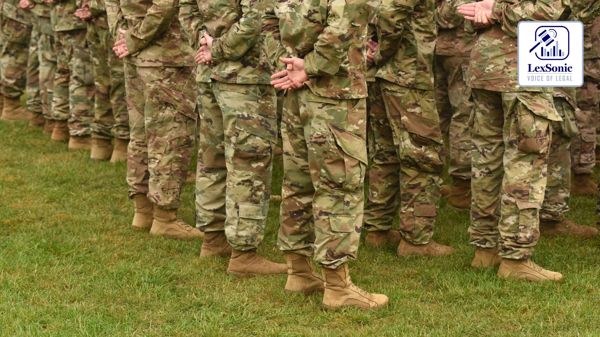Supreme Court Orders Reconsideration for Territorial Army Officer's Promotion.
21 May 2025
Armed Forces Tribunal >> Miscellaneous
In a recent judgment, the Supreme Court of India partly allowed an appeal from a Territorial Army officer, directing the Chief of Army Staff (COAS) to reconsider his grading for promotion to the rank of Colonel. The decision highlights the powers of the competent authority in modifying Selection Board recommendations, while also emphasizing fairness in cases where similar discretionary powers were exercised for other candidates.
Background of the Case:
The appellant, commissioned into the Territorial Army in 1978, reached the rank of Time Scale Major by 1991 and Selection Grade Lieutenant Colonel by 1996. Between 2000 and 2003, he was considered for promotion to Colonel on five occasions but was not empanelled. He filed numerous complaints, including statutory and non-statutory challenges against his Annual Confidential Reports (ACRs) and non-empanelment. His writ petition, initially filed in the Delhi High Court, was later transferred to the Armed Forces Tribunal, which found no error in his non-promotion.

The appellant sought various reliefs, including promotion to substantive Colonel and Brigadier, acceptance of certain clarifications regarding his ACRs, and an inquiry into the promotion of another officer, referred to as "respondent No. 2."
Arguments Presented:
The appellant, appearing in person, argued that he had been victimized and unfairly denied promotion despite having consistently above-average or near-excellent ACRs. He relied on the Territorial Army Regulations, 1948, which state that officers are eligible for promotion to substantive Colonel against specific vacancies after 22 years of service. He specifically pointed out that the result of the No. 3 Selection Board meeting in June 2000, which rejected his promotion, was later nullified for certain reasons, suggesting a favour was extended to respondent No. 2.
In response, the learned Additional Solicitor General (ASG) referred to Paragraph 108 (d) of the Defence Services Regulations for the Army, 1987 (DSR). This provision grants the competent authority (COAS) the power to differ from, modify, review, or even repeal the recommendations of the Selection Board. The ASG stated that respondent No. 2, initially not recommended by the No. 3 Selection Board in June 2001, was empanelled by the COAS under this policy. The ASG produced confidential proceedings of the Selection Boards, revealing that the appellant consistently received a 'Z' grading (unfit for promotion) in all five considerations between 2000 and 2003.
Supreme Court's Deliberation and Decision:
The Supreme Court, after reviewing the confidential proceedings, noted the elaborate selection process. It observed that in the June 2001 process, while the appellant received a 'Z' grading, respondent No. 2 was initially given 'Z' but his grading was subsequently altered to 'B' (fit for promotion) by the COAS.
The Court acknowledged that the DSR empowers the COAS as the final authority for promotions, with inherent powers to modify Selection Board recommendations. However, the crucial observation was that while the COAS reconsidered and upgraded respondent No. 2's case, a similar consideration was not extended to the appellant.
Based on this discrepancy, the Supreme Court concluded that since the COAS had exercised its discretion to upgrade respondent No. 2's grading, the appellant's case for upgradation from category 'Z' in the June 2001 selection process "ought to have been considered."
Court's Directives:
The Supreme Court directed the COAS to reconsider the grading given to the appellant in the selection process of June 2001. An appropriate decision must be taken within three months from the date of the order. The Court clarified that if the appellant's 'Z' grading is ultimately upgraded, his case for notional promotion, along with consequential benefits, shall also be considered.
With this modification, the impugned judgment of the Tribunal was largely confirmed, and the appeal was partly allowed. This ruling underscores the importance of equitable application of discretionary powers within military promotion policies.
